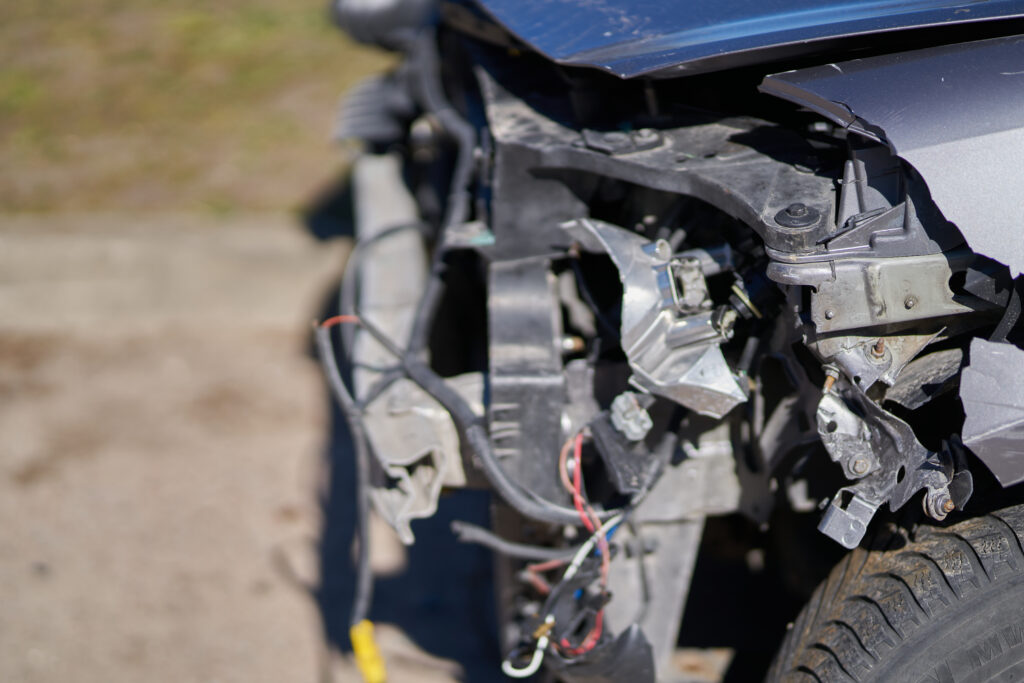If you’ve been involved in a car accident, you may be wondering how much compensation you can receive for the pain and suffering you’ve endured. Car accidents often result in physical injuries, emotional distress, and a significant impact on your quality of life. Understanding the potential damages you can claim and how pain and suffering is calculated can help maximize the compensation you deserve. If you or a loved one has been in a car accident, always consult a St. Petersburg car accident lawyer as soon as possible to understand your legal rights and options.
Potential Damages in a Car Accident
Damages are the financial representation of the losses or inconveniences you have suffered due to the car accident. When seeking compensation for a car accident, you may be eligible for three types of damages:
Economic Damages
Economic damages refer to the financial losses directly associated with the accident. These damages are tangible and can be easily calculated. Economic damages may include:
- Medical expenses: This includes hospital bills, surgeries, rehabilitation, and ongoing treatment costs.
- Lost income: If the accident caused you to miss work, you can claim compensation for the income and other benefits you would have earned.
- Property damage: If your vehicle or personal belongings were damaged in the accident, you can seek reimbursement for repairs or replacement.
Non-Economic Damages
Non-economic damages are losses that are more difficult to quantify. These damages are less tangible but equally important. Non-economic damages may include:
- Pain and suffering: This refers to the physical and emotional distress caused by the accident, including chronic pain, anxiety, depression, and loss of enjoyment of life.
- Emotional distress: If the accident resulted in psychological trauma or mental anguish, you may be eligible for compensation.
- Loss of consortium: This refers to the impact the accident has on your relationship with your spouse, including loss of companionship or intimacy.
Punitive Damages
In rare cases, punitive damages may be awarded. These damages punish the at-fault party for their willful or reckless behavior. Punitive damages are not commonly awarded and are typically reserved for extreme negligence or malicious intent cases. Only a judge or jury can award them; therefore, if your case settles out of court, you won’t be eligible to receive punitive damages.
What Does Pain and Suffering Include?
Pain and suffering compensation aims to reimburse car accident victims for the physical and emotional distress they have endured. It includes:
- Physical pain: This refers to any physical injuries sustained in the accident, such as broken bones, burns, or soft tissue injuries.
- Emotional distress: Car accidents can leave victims with long-lasting psychological trauma, including anxiety, depression, and post-traumatic stress disorder (PTSD).
- Loss of enjoyment of life: If the accident has limited your ability to participate in activities you once enjoyed, you may be compensated for losing quality of life.
- Scarring and disfigurement: You may be eligible for additional compensation if the accident resulted in permanent scarring or disfigurement.
Why Pain and Suffering is Important to Include in Your Claim for Damages

Including pain and suffering in your claim for damages is not only your legal right but also imperative for several reasons:
- Fair compensation: Pain and suffering can significantly impact one’s life, and it’s essential to receive fair compensation for the physical and emotional hardships one has endured.
- Full recovery: Seeking compensation for pain and suffering can help you access the necessary resources, such as therapy or counseling, to aid in your recovery.
- Compensation for non-economic losses: Non-economic damages, such as pain and suffering, can’t be quantified based on medical bills and lost income alone. Including pain and suffering in your claim ensures you’re compensated for the full extent of your damages.
- Holding the at-fault party accountable: By seeking compensation for pain and suffering, you are sending a message that the at-fault party should be held responsible for their actions, which can help prevent future accidents.
Limitations and Challenges in Obtaining Pain and Suffering Compensation
Obtaining fair compensation for pain and suffering can be challenging for car accident victims. Some of the limitations and challenges that victims may face include:
- Legal restrictions: Some jurisdictions cap or limit pain and suffering damages, which can significantly impact the final settlement amount.
- Lack of clear evidence: Proving subjective damages like pain and suffering can be challenging as they do not have easily measurable parameters. Insurance companies may dispute the extent and impact of the injuries, resulting in lower compensation offers.
- Insurance company tactics: Insurance companies often utilize various strategies to minimize the value of pain and suffering claims, such as offering low settlement amounts or delaying the claims process.
What are Damage Caps?
When you suffer an injury in a car accident, you may be entitled to compensation for your pain and suffering. Unfortunately, there are certain limitations on how much money you can receive. These limitations are known as damage caps.
Damage caps are laws that restrict the amount of money that can be awarded to an injured party in a personal injury lawsuit. They are intended to limit excessive jury verdicts and prevent frivolous lawsuits. Each state has specific laws regarding damage caps, so consult an attorney familiar with your state’s laws.
One important thing to note is that damage caps typically apply only to non-economic damages, such as pain and suffering, emotional distress, and loss of enjoyment of life. Economic damages, such as medical expenses and lost income, are generally not subject to damage caps.
The purpose of damage caps is to ensure consistency and predictability in personal injury awards. They aim to balance compensating the injured party and preventing excessive financial burden on the at-fault party or insurance companies.

Some states also have different types of damage caps. For example, some have a total damage cap, limiting the amount of money awarded to the injured party. Other states have a cap on non-economic damages, which limits the amount of money that can be explicitly awarded for pain and suffering.
In addition to state-specific damage caps, federal laws may limit personal injury awards. For example, suppose you suffered an injury in a car accident involving a federal employee or on federal property. In that case, specific laws may affect your ability to recover damages.
When you hire a car accident attorney, they will assess your case, help you understand the applicable damage caps, and fight for the maximum compensation you deserve.
How to Maximize Your Pain and Suffering Compensation
To maximize your pain and suffering compensation, consider the following strategies:
- Seek immediate medical attention: Be sure to seek medical attention promptly after an accident, even if you don’t feel any immediate injuries. A medical professional can document potential injuries and provide valuable evidence for your claim.
- Document your injuries and their impact: Keep a detailed record of injuries, medical treatments received, and any limitations or impacts on your daily life. This documentation will strengthen your claim for pain and suffering compensation.
- Engage the services of a car accident lawyer: Hiring an experienced car accident lawyer is essential to maximizing the potential of your injury claim. They can help gather evidence, negotiate with insurance companies, and advocate for your legal rights, which you may not even know you have.
- Preserve evidence: Collect and preserve any evidence related to the accident, such as photographs, witness statements, police reports, and medical records. This evidence will be instrumental in establishing liability and proving the extent of your pain and suffering. When you hire a car accident lawyer, they can do this for you.
How is Pain and Suffering Calculated in a Car Accident Claim?
Calculating pain and suffering damages is a complex process that involves various factors. Insurance companies and courts typically consider the following when determining the value of pain and suffering:
- Severity of injuries: The more severe and long-lasting your injuries, the higher your potential compensation may be.
- Impact on daily life: If the accident has significantly impacted your ability to perform daily activities, your compensation may increase.
- Duration of recovery: The time it takes to recover from your injuries plays a role in calculating pain and suffering damages.
- Medical evidence: Medical records, diagnosis, and treatment plans provide valuable evidence of the extent of your injuries and their impact on your life.
Pain and suffering compensation varies from case to case. Consulting with an experienced car accident lawyer will help you understand the factors affecting your claim’s value.
The calculation of pain and suffering in a car accident case is not an exact science. However, there are various methods to estimate the value of these non-economic damages:
- The Multiplier Method: This method involves multiplying the victim’s economic damages (such as medical expenses and lost income) by a particular factor. The multiplier is typically determined based on the severity of the injuries, with more severe injuries receiving a higher multiplier.
- The Per Diem Method: In this method, a daily rate is assigned for the duration of the victim’s recovery period. The daily rate is based on various factors, such as the victim’s daily activities and the level of pain experienced. The total compensation for pain and suffering is then calculated by multiplying the daily rate by the number of days it takes for the victim to recover fully.
Common Injuries in a Car Accident that Can Lead to Pain and Suffering
Car accidents can result in various injuries that can lead to significant pain and suffering. Some of the common injuries include:
- Whiplash: Whiplash is a neck injury caused by sudden back-and-forth head movement. It can result in chronic pain, headaches, and limited neck movement.
- Broken bones: Fractures and broken bones can be painful and require extensive medical treatment and rehabilitation.
- Spinal cord injuries (SCI): Severe spinal cord injuries can lead to paralysis, chronic pain, and loss of motor function.
- Traumatic brain injuries (TBI): TBIs can have severe consequences, including cognitive impairments, memory loss, and chronic headaches.
The extent and severity of these injuries will significantly affect the compensation you may be entitled to for the pain and suffering.
What is Your Pain and Suffering Worth?
Calculating the exact worth of your pain and suffering is challenging, as it depends on several factors unique to your case. However, an experienced car accident lawyer can help estimate the potential value based on similar cases and their experience handling car accident claims. Remember that pain and suffering compensation is typically awarded in addition to economic damages, ensuring you receive fair compensation for all your losses.
The Statute of Limitations for Filing a Car Accident Claim

You must also know the statute of limitations for filing a car accident claim. The statute of limitations is the time limit you must file your claim. Please file within this timeframe to avoid losing your right to seek compensation for your injuries and damages.
The statute of limitations varies from state to state, typically one to six years after the accident. Be sure to consult a car accident lawyer as soon as possible to determine the specific deadline for your case.
Exceptions and extensions to the statute of limitations may exist in certain circumstances, such as if the victim was a minor at the time of the accident or if the injuries were not immediately apparent. Consulting with an attorney will help you understand any exceptions or extensions that may apply to your situation and ensure your case is filed on time.
Injured in a Recent Car Accident? Reach Out for Legal Help Today
If you or a loved one has been in a car accident and is seeking compensation for pain and suffering, don’t hesitate to contact a well-versed car accident lawyer today. Don’t bear the heavy burden alone—reach out to schedule a consultation and learn more about your legal options.
An experienced personal injury attorney in St. Petersburg will advise whether you have a case and, if so, begin gathering supporting evidence as soon as possible. They know how to prove pain and suffering and can counsel you on how to document the effects of your injuries to best demonstrate the full value of your claim.